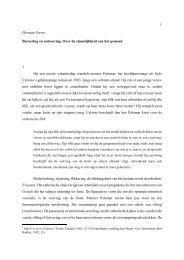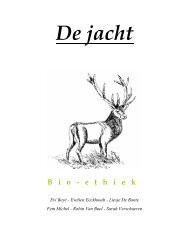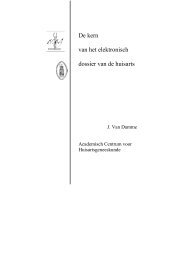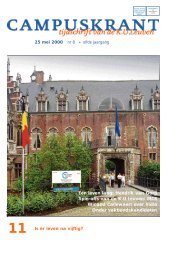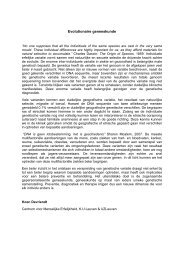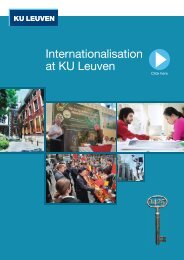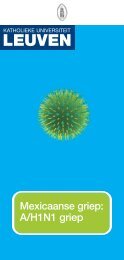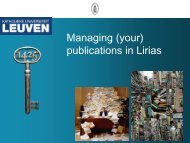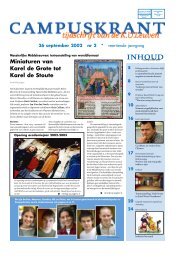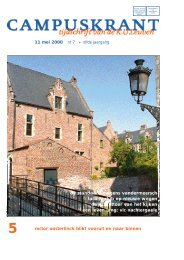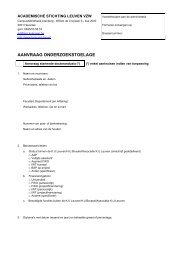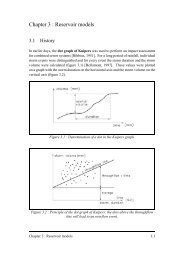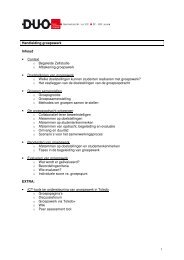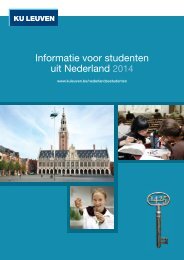EQUALITY GUIdE - KU Leuven
EQUALITY GUIdE - KU Leuven
EQUALITY GUIdE - KU Leuven
Create successful ePaper yourself
Turn your PDF publications into a flip-book with our unique Google optimized e-Paper software.
78 Equality Guide<br />
tions and experiences of their research population. A couple of years prior to the PhDresearch,<br />
the SISWO (the institute for social studies) performed a tentative study on the<br />
various aspects of an academic career 84 . In addition to the inflow, the researchers studied<br />
the through- and outflow at universities and research centres. Furthermore, special<br />
attention was paid to the position of female researchers in each phase of the academic<br />
career. Even though the method used was mainly qualitative, this research was very<br />
valuable for our survey. After all, the results on the terms of employment, the working<br />
conditions, the employer-employee relation, the personal motivation and the content<br />
of an academic position could be used to draw up a list of the advantages and disadvantages<br />
of an academic career.<br />
Contrary to these studies, the third group of studies explicitly focuses on the gender<br />
issues in the academic world. Apart from several international comparative studies,<br />
various national studies were used as background information for the survey. Margo<br />
Brouns, among others, has repeatedly denounced the issues faced by female researchers<br />
at Dutch universities 85 . Equally important for this chapter are the reports on equal<br />
opportunities from the Catholic University of <strong>Leuven</strong> (1999 and 2004) 86 .<br />
Whereas the results of the second and third group of studies shed light on the reality of<br />
an academic career, the student survey focuses on their ideas about an ideal working<br />
environment and employer. By comparing both results, an analysis can be made of the<br />
discrepancy between the students’ expectations on the one hand and the actual experiences<br />
of academic researchers on the other.<br />
2.3. Process report<br />
Ghent University’s Advisory Centre for Students is responsible for general study and<br />
career advice 87 . The Centre organizes workshops about study advice and future career<br />
opportunities for students from various faculties. Another task of the Centre is permanent<br />
evaluation, surveying students on various themes and creating statistics on the<br />
student population. Nevertheless, no research had yet been done on the way in which<br />
male and female students make their study and career choices. Although the Centre<br />
both publishes a brochure on taking a doctor’s degree and organizes annual information<br />
sessions on the prospects of writing a PhD, the matter had not yet been studied<br />
from a gender perspective either. As a result, there were no current data available on<br />
the students’ wishes and expectations with respect to an academic career. Hence, the<br />
84<br />
85<br />
86<br />
87<br />
De Gier et al. (2001), op. cit.<br />
Benschop, Y. & M. Brouns (2003). ‘Crumbling Ivory Towers: Academic Organizing and its Gender<br />
Effects’. In: Gender, Work and Organization, Vol. 10, nr. 2; Hoving & Brouns (1998). Women in<br />
Science and Humanities: the Difference that Makes the Difference. Utrecht: NVG.<br />
Centrum voor Gelijke Kansenbeleid, K.U.<strong>Leuven</strong> (1999 and 2004).<br />
http://www.ugent.be/en/prospectstud/studycareerservice.htm.



